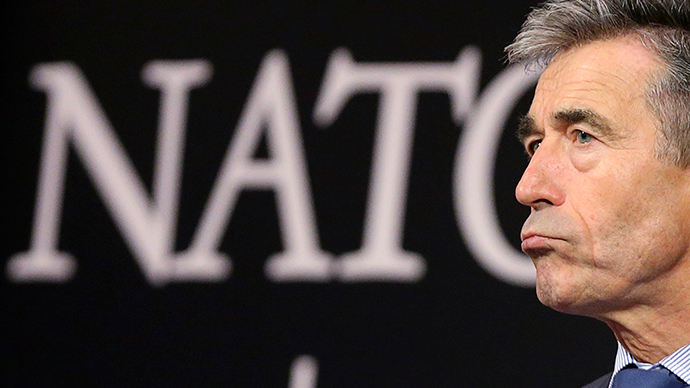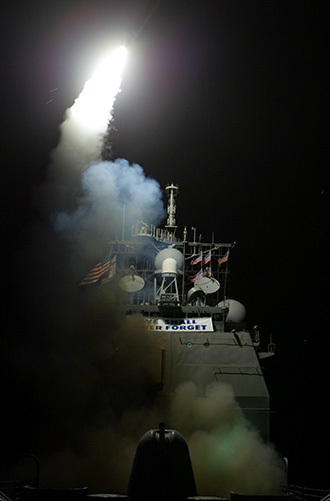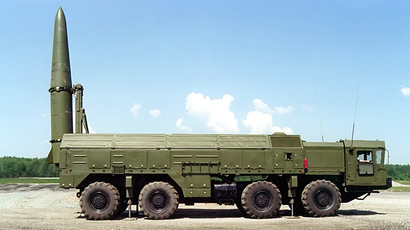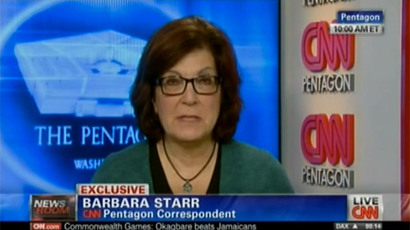Russia rebuffs NATO over nuclear missile treaty

The Russian Foreign Ministry has sharply criticized NATO’s Secretary General for intervening in the row over the INF nuclear missile treaty, pointing out that NATO was not a signatory, but that the alliance’s member states could always join.
Moscow’s rebuff came after a statement on Wednesday by NATO Secretary General perplexed Russian diplomats.
“The United States has briefed the North Atlantic Council on its determination that the Russian Federation is in violation of its obligations under the Intermediate-Range Nuclear Forces (INF) Treaty,” Rasmussen’s statement said.
Rasmussen stressed that the treaty “has a special place in history” and that Russia “should work constructively to resolve this critical treaty issue” and preserve its viability “by returning to full compliance in a verifiable manner.”

“Continuing to uphold the treaty strengthens the security of all, including Russia,” Rasmussen said.
In reply, Russia’s Foreign Ministry “not without a bit of surprise” questioned why Rasmussen was commenting on a treaty NATO was not a party to.
"We hope that Secretary-General is not going to dispute the fact that this Treaty was signed in December 1987 between the USSR and the US, not between the USSR and NATO or Russia and NATO,” the ministry said in a statement.
If NATO’s chief is truly concerned with meeting the obligations this treaty imply, he should better “address a NATO member state that signed this treaty,” the ministry said, referring to the US.
Diplomats in Moscow pointed out that all major problems with implementation of the INF Treaty are primarily caused by the US, such as the launches of target missiles, development of armed UAVs, and deployment of Naval Mk-41 platforms capable of launching medium-range cruise missiles.
“We will pursue further elimination of the aforementioned concerns,” Russian diplomats said, calling on Rasmussen to help to make other NATO member states join the treaty to give it a truly multilateral status.
The Intermediate-Range Nuclear Forces (INF) Treaty signed by US President Ronald Reagan and Soviet leader Mikhail Gorbachev in 1987 obliged the two sides “not to possess, produce, or flight-test a ground-launched cruise missile with a range capability of 500 to 5,500 kilometers, or to possess or produce launchers of such missiles,” Rasmussen said in his statement.
Russia’s General Staff chief, Gen. Valery Gerasimov, said Thursday that Moscow is strictly implementing the INF treaty with the US. He discussed the situation around the agreement during a phone conversation with US Chairman of the Joint Chiefs of Staff, Gen. Martin Dempsey.
“Gerasimov reaffirmed Russia’s adherence to strict implementation of the INF treaty,” the Russian Defense Ministry said in a statement.
On Tuesday, US President Barack Obama accused Russia of violating the nuclear weapons reduction treaty.
The exchange of accusations between Moscow and Washington is taking place against the background of worsening bilateral relations, primarily over Ukraine.
The US and EU have introduced several stages of economic sanctions against Moscow, including those against whole sectors of the Russian economy.
Moscow have promised that the US will feel “tangible losses” from what it called “destructive, myopic” sanctions and expressed its disappointment with the EU’s inability to act independently from Washington in the international arena.














